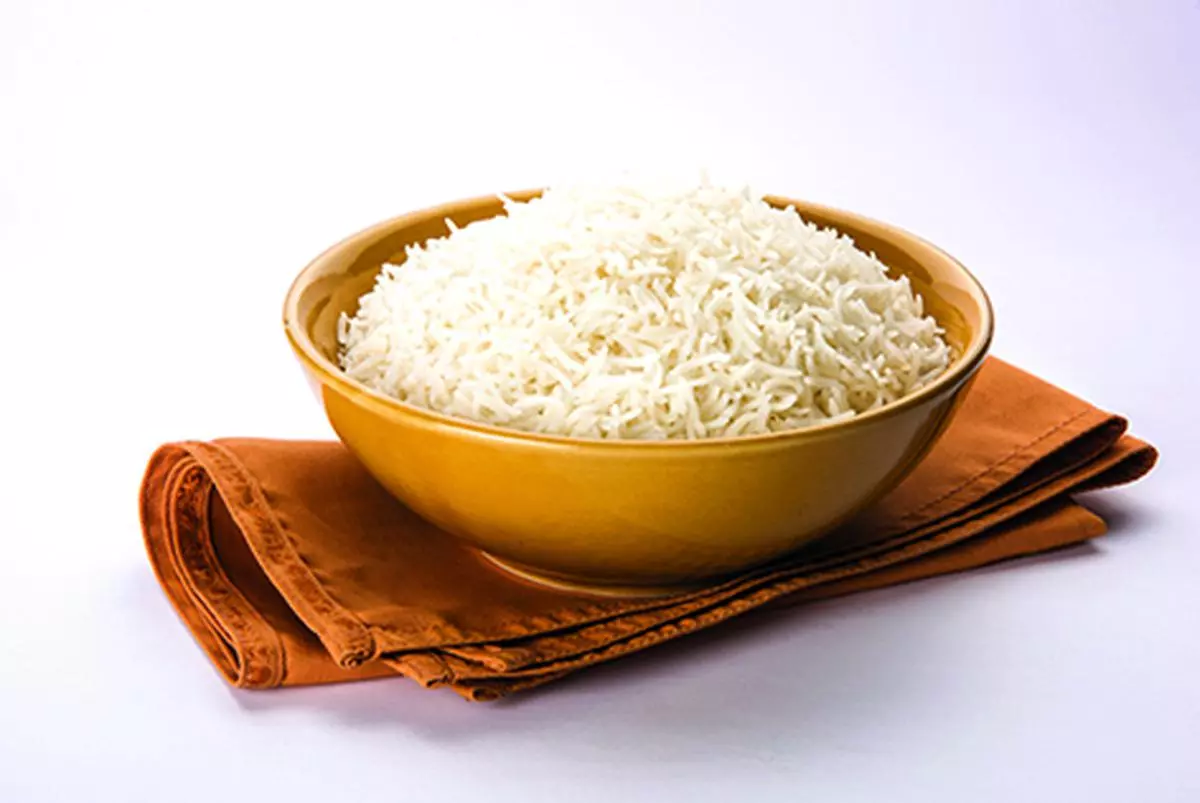
The Agricultural and Processed Food Products Export Development Authority (APEDA) will hold detailed discussions with the All-India Rice Exporters’ Association, major exporters, experts and other stakeholders on the new code of practice (CoP) document the United Kingdom has come out with on basmati rice.
APEDA will discuss the CoP documents and its provisions to analyse the short and long-term impacts on India’s basmati exports, if any.
Responding to businessline’s report on UK’s new CoP for basmati triggering a controversy, APEDA said it was brought out by the British Retail Consortium and The Rice Association, UK, the representative organisation for the UK rice sector.
Not regulatory document
“Its main aim is to promote the interests of members in all matters pertaining to the import, preparation, processing, packaging and marketing of rice. This has also been discussed with the Federation of European Rice Millers (FERM), AIREA and Rice Exporters Association of Pakistan (REAP),” the authority said.
Stating that CoP was not a regulatory document, it said rather the associations had agreed with regard to basmati rice trade in the UK. AIREA, India’s major association engaged in basmati export, was involved in bringing out the CoP.
The scope of the CoP was limited to labelling of basmati rice sold in the UK and the code is voluntary. “…those choosing not to follow its provisions are required to meet the similar minimum legal requirements to ensure that their basmati rice is authentic,” APEDA said.
The authority said the CoP lists varieties that are currently approved by Indian and Pakistani authorities. It covers most of the popular basmati varieties notified under the Indian Seeds Act, 1966, provisions. The new CoP has included certain newly-notified basmati varieties.
Deletion of 5 varieties
On the CoP deleting five varieties grown in India, APEDA said four varieties — Malviya Basmati Dhan, Pant Basmati 1, Vallabh Basmati 21 and Vallabh Basmati 24 — were not being cultivated. Thus, exports will not be affected.
However, the deletion of Punjab basmati in the list seemed to be an error as India had no such notified variety. “All the notified varieties having Punjab Basmati as prefix have some numeral as suffix in the varietal name like Punjab Basmati 1, 2, 3 etc and hence does not have an impact on Indian basmati exports,” it said.
On dilution of the growing area, particularly the Indo-Gangetic Plains, APEDA said, “The document has also referred to the February 2003 publication by the Food Standards Agency as the basis for the Code with the emphasis on ‘specific areas of Indo Gangetic Plains’”.
On basmati Geographical Indication (GI) tag expert S Chandrasekaran questioning on APEDA not being consulted over the new CoP, the authority said “it would have been prudent on the part of the UK Association to discuss the CoP document with APEDA as owner of the basmati GI tag which is also registered in UK.”
A geopolitical issue
APEDA has registered Basmati name and logo as Certification Trade Mark (CTM) in the UK, it pointed out. On DNA fingerprint, the authority said the Food Safety and Standards Authority of India has framed the requirement of purity and it will be implemented soon.
APEDA concurred with AIREA views that the new CoP will strengthen India’s hold in the UK basmati market.
When contacted, Chandrasekaran said basmati GI is a geopolitical subject involving the country’s boundary and sovereignty. Though the CoP said the code is voluntary, it says those not following it must “meet the same minimum legal requirements” for the rice to be authentic. “The voluntary nature is being indirectly made mandatory,” he said.
The new CoP has strategic implications on the ownership of the fragrant rice. “If a precedent is created by modifying the label of basmati (by any other organisation or foreign organisation), it encourages similar actions in the future if it suits a particular interest,” Chandrasekaran said.
Nepal opposed India
On the deletion of varieties, he wondered what if in the future the CoP deleted an active commercial variety, though it has now done away with only a non-commercial one. “It will have serious ramifications in North-West India. Also, by accepting the DNA testing protocol today, India will lose the right to question the delisting of varieties in the future,” the expert said.
On the dilution of the Indo-Gangetic Plain description, Chandrasekaran said Nepal has opposed India’s application for a Basmati GI tag in the European Commission.
“There must be some reasons for the change of position in the area. For example, the Code of Practice of Basmati Rice (CoP), United Kingdom, issued in June 2017 did not consider Himachal Pradesh and Delhi as growing areas,” he said.
APEDA’s application with the GI Registrar included Himachal Pradesh and Delhi from the start. “Why did CoP 2017 drop these areas? Dropping of the varieties and the growing areas is creating a precedent where in the future, other countries could do the same,” he said.
Also, the DNA testing protocol developed by the University of Bangor, Wales, is funded by DEFRA. “It is imperative to challenge the protocol.






